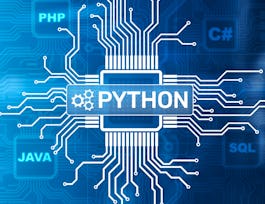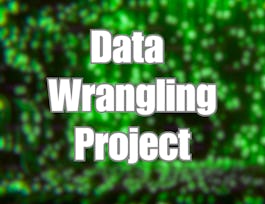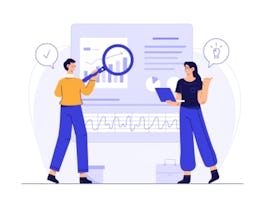Python doesn't just represent numbers, but also text and other kinds of things. In technical terms, the parts of Python you'll learn are strings, lists, Booleans, errors, lists, and list manipulation. At a higher level you will learn how people use code to represent real-world ideas. In the process you'll use Python to automatically read Wikipedia and Spotify.

Give your career the gift of Coursera Plus with $160 off, billed annually. Save today.


Python Basics: Retrieving Online Data
This course is part of Python Basics for Online Research Specialization

Instructor: Seth Frey
Included with 
What you'll learn
Learn strategies for getting coding help and run code to automatically access thousands of pages on Wikipedia.
Practice playing with text, numbers, true/false values in Python and learn how to handle error messages and ask for help.
Learn how Python lets us change, grow, access, and play with lists.
Run code that accesses Twitter from Python, interact with virtually every aspect of Twitter, and learn about social media bots.
Details to know

Add to your LinkedIn profile
3 assignments
See how employees at top companies are mastering in-demand skills

Build your subject-matter expertise
- Learn new concepts from industry experts
- Gain a foundational understanding of a subject or tool
- Develop job-relevant skills with hands-on projects
- Earn a shareable career certificate


Earn a career certificate
Add this credential to your LinkedIn profile, resume, or CV
Share it on social media and in your performance review

There are 4 modules in this course
What do you think, is it easier to become famous than it used to be or harder? In this module, you will run code to automatically access thousands of pages on Wikipedia and calculate your probability of becoming famous over time. Let's get started!
What's included
3 videos4 readings1 assignment1 programming assignment2 discussion prompts
There is more to programming than reproducing your calculator. In this module, we learn how to play with text, numbers, true/false values in Python, all towards analyzing a popular pop song. We also learn how to handle error messages and ask for help.
What's included
8 videos1 assignment1 programming assignment1 discussion prompt
Sometimes we deal with individual things in the world, sometimes collections of things. Python represents this idea with collections such as lists. We learn how Python lets us change, grow, access, and play with lists. We'll see how this is useful by reconstructing the Western history of the months of the year.
What's included
9 videos1 reading1 assignment1 programming assignment1 discussion prompt
In the honor's section of this module, you will run code that accesses Spotify from Python. You have to jump through a few hoops to get it set up, but once it's running you can interact with virtually every aspect of Spotify via Python.
What's included
2 videos3 readings1 programming assignment2 discussion prompts
Instructor

Offered by
Recommended if you're interested in Algorithms

Arizona State University

University of Pennsylvania

University of Colorado Boulder

Coursera Project Network
Why people choose Coursera for their career




New to Algorithms? Start here.

Open new doors with Coursera Plus
Unlimited access to 7,000+ world-class courses, hands-on projects, and job-ready certificate programs - all included in your subscription
Advance your career with an online degree
Earn a degree from world-class universities - 100% online
Join over 3,400 global companies that choose Coursera for Business
Upskill your employees to excel in the digital economy
Frequently asked questions
Access to lectures and assignments depends on your type of enrollment. If you take a course in audit mode, you will be able to see most course materials for free. To access graded assignments and to earn a Certificate, you will need to purchase the Certificate experience, during or after your audit. If you don't see the audit option:
The course may not offer an audit option. You can try a Free Trial instead, or apply for Financial Aid.
The course may offer 'Full Course, No Certificate' instead. This option lets you see all course materials, submit required assessments, and get a final grade. This also means that you will not be able to purchase a Certificate experience.
When you enroll in the course, you get access to all of the courses in the Specialization, and you earn a certificate when you complete the work. Your electronic Certificate will be added to your Accomplishments page - from there, you can print your Certificate or add it to your LinkedIn profile. If you only want to read and view the course content, you can audit the course for free.
If you subscribed, you get a 7-day free trial during which you can cancel at no penalty. After that, we don’t give refunds, but you can cancel your subscription at any time. See our full refund policy.

